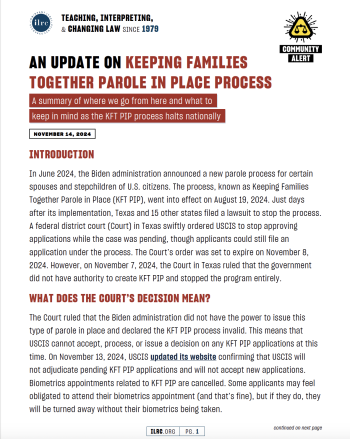Term Page
Family-Based 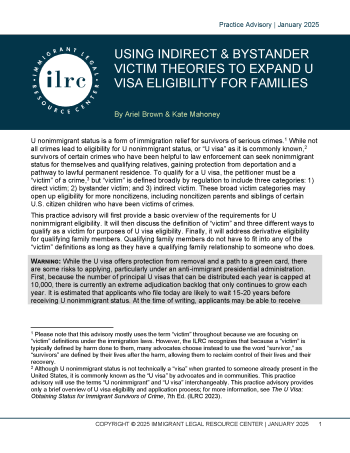
Eligibility for U Nonimmigrant Status, commonly known as the “U Visa,” hinges on whether the applicant has been the “victim” of a qualifying crime. The regulations implementing the U visa statute contemplate three categories of “victims” who may qualify for the U visa: direct, bystander, and indirect victims. This practice advisory provides a basic overview of the requirements for U nonimmigrant eligibility. It then discusses the definition of “victim” and three different ways to qualify as a victim for purposes of U visa eligibility. Finally, it addresses derivative eligibility for qualifying family members.
Every family should have a family preparedness plan in case of an emergency. It is equally critical for immigrant families to think ahead and set more concrete plans for immigration-related emergencies that may arise.
To assist in this, we've created this toolkit that goes into detail about different childcare options available in case of an absent parent, how to find trusted immigration services in your community, and how to prepare to assert your constitutional rights in the presence of an immigration officer.
To assist in this, we've created this toolkit that goes into detail about different childcare options available in case of an absent parent, how to find trusted immigration services in your community, and how to prepare to assert your constitutional rights in the presence of an immigration officer.
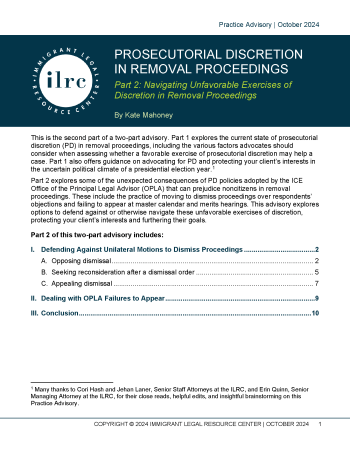
Part 2 of this 2-part advisory explores some of the unexpected consequences of PD policies adopted by the ICE Office of the Principal Legal Advisor (OPLA) that can prejudice noncitizens in removal proceedings, including the practice of moving to dismiss proceedings over respondents’ objections and failing to appear at hearings.
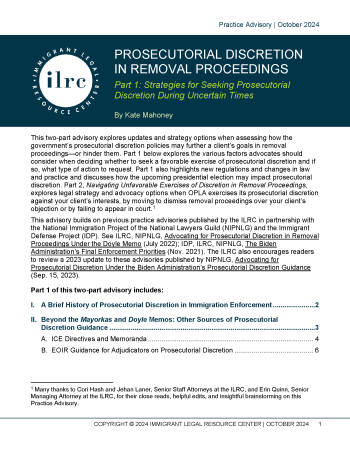
Part 1 of this 2-part advisory provides updates on DHS’s prosecutorial discretion in removal proceedings and explores the various factors that advocates should consider when deciding whether to seek a favorable exercise of discretion from the ICE Office of the Principal Legal Advisor (OPLA). Part 1 also highlights new regulations and discusses how the upcoming presidential election may impact prosecutorial discretion.
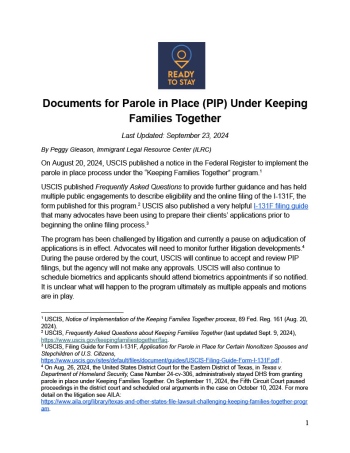
This advisory describes supporting documentation for the Parole in Place program under Keeping Families Together. The adjudications for this program are currently on pause due to litigation. Persons hoping to apply should the program resume may gather and prepare supporting documents in advance.
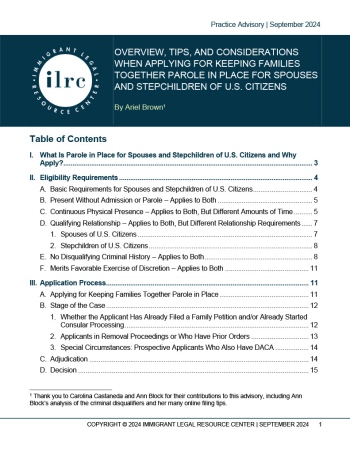
This practice advisory describes the new “Keeping Families Together” parole in place process for certain spouses and stepchildren of U.S. citizens including what exactly is it and what you get if approved. It also details the eligibility requirements and application process as well as addressing some of the more “in the weeds” issues such as if the USC spouse is deceased, common law marriages, the different presumptions that apply depending on the applicant’s criminal history or if they have an unexecuted final removal order, and what happens if the applicant has already started consular processing. Additionally, attached to this advisory is an appendix of online filing tips specific to the Form I-131F.
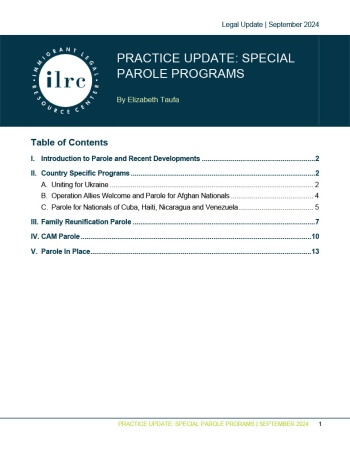
The advisory provides information and updates on various parole programs including Uniting for Ukraine, Operation Allies Welcome, CHNV Parole, Family Reunification Parole, CAM Parole, and Parole in Place.
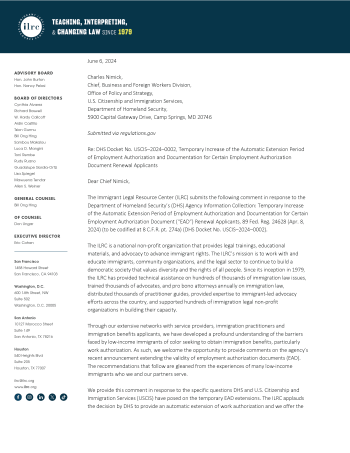
On June 6, 2024, the ILRC submitted a comment in support of DHS’s temporary final rule (TFR) providing automatic extensions of employment authorization documents. The TFR specifically requested comment on whether the measure should be permanent and how long permanent automatic extensions should be. The ILRC wrote in support of a long and permanent auto-extension policy to ensure that applicants are not harmed by administrative delays that lead to lapses in document validity.
